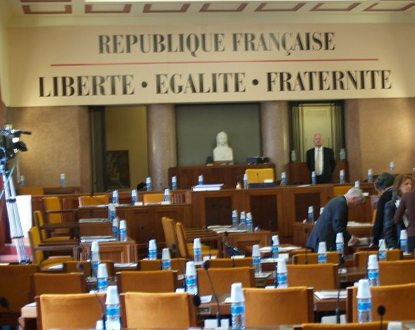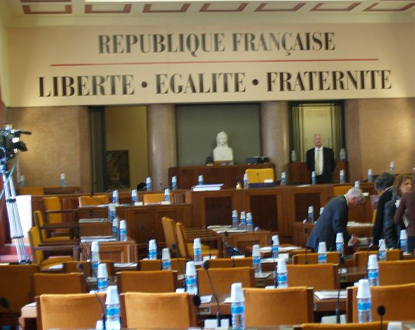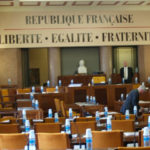Yesterday, Good Friday, was the day when believers observe fasting and participate in the Via Crucis. In a more secular and confessionally neutral context, the Nice city council replaced this penance with sometimes confusing chatter that exceeded 10 hours of session to dispatch 114 deliberations.
 Why such a loaded agenda with the (proven) risk of losing track between strategically important deliberations and those more minor or even marginal, which only an outdated regulation not adapted to modern times requires to be brought to the chamber?
Why such a loaded agenda with the (proven) risk of losing track between strategically important deliberations and those more minor or even marginal, which only an outdated regulation not adapted to modern times requires to be brought to the chamber?
Thus, on one side, a municipal majority that wanted to implement an initial part of the proposals from the electoral program of the Mayor of Nice, as a way to mark the grace period of the election winner.
On the other hand, opposition groups ideologically separated but at times obliged to come to an agreement to hold some sway in the debate and to settle the distribution of the positions reserved for them on various commissions.
Conclusion? Discussions where it was not always easy to find unassailable logic, often partisan positions, and some rhetorical feats from those for whom it is a weapon in the exercise of their function.
In short, a day sometimes marked by burlesque theater with some heated exchanges between Marie-Christine Arnautu (quite a character) and Christian Estrosi: this promises for the next six years!
Moreover, it must be acknowledged that the Mayor of Nice managed this long session without resorting to the usual lyrical flights of the first term, but instead showing mastery and a certain serenity.
Should we imagine that during his second term, Christian Estrosi will be a copycat, in terms of sobriety, of the “speaker” of the House of Commons across the Channel?
But, to return to the key points of the assumed deliberations:
The procurement and public service delegation committees will be chaired by Martine Ouaknine. The opposition will be represented by Benoît Kandel and Christine Dorejo. Faced with the FN’s (the most significant opposition group) refusal to participate in these committees, the PS/EELV groups and the group that we will call Bettati for the sake of clarity, gathered in a cross vote for their candidate.
The Culture, Sports, and Events, Youth Proximity, Social Cohesion, Finance and General Administration, Urban Planning, and Sustainable Development committees are thus constituted.
Regarding the main operations of the Nice city council, there are no changes: Joëlle Martinaux remains president of the CCAS (Christine Dorejo and Lucienne Ferron have been appointed on behalf of the opposition), Dominique Estrosi-Sassone will stay at the head of Côte d’Azur Habitat (Martine Martinon will sit on behalf of the opposition), and Philippe Pradal remains in charge of the Semiacs.
Another significant deliberation deserves mention: The election of Jean-Pierre Royanez, honorary magistrate, as president of the Ethics Committee that Christian Estrosi had mentioned during his electoral campaign. He will form his team in the coming days and certainly won’t lack work with a first dossier expected on his desk: The purchase of an artwork by an artist, a non-elected running mate of the Nice Ensemble municipal majority list. His decision could even set a precedent.
In the same vein, there is the creation of a mediator position (a function born a few decades ago in Sweden under the name Ombudsman), an authority responsible for facilitating the resolution of disputes between the administration and citizens, in the name of equity.
And again, to mention the most important: the Blue Service for minor repairs, the Victim Assistance House for acts of violence or incivility, and the public purchasing charter that will promote local businesses.
Finally, how not to mention an act that, if not a political act… it strangely resembles one: The direct administration of the CEDAC group (6 centers for recreation and leisure) with nearly 7,000 members.
The reason invoked by the opposition would be the presence of Madame Bettati (wife of the opposition advisor and former deputy of Christian Estrosi) as president of this association and a clear desire to make her pay for her electoral dissident act.
On the Mayor of Nice’s side, they respond with a desire to take these activities under direct administration, as was done, with some success, for school cafeterias, transport, or water.
It’s often said that “Revenge is a dish best served cold.”
In this case, it’s necessary to change the temperature!



